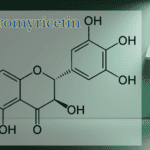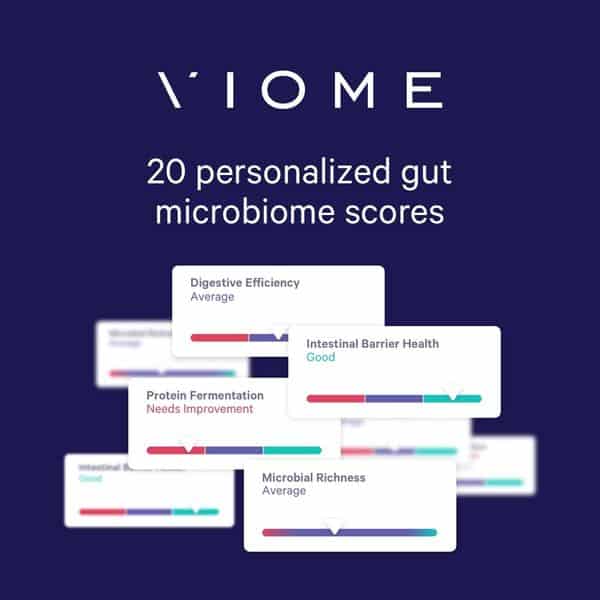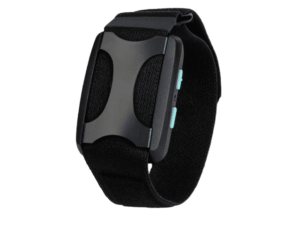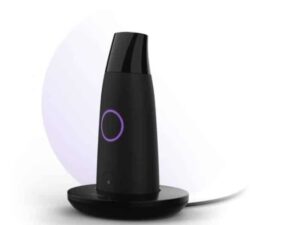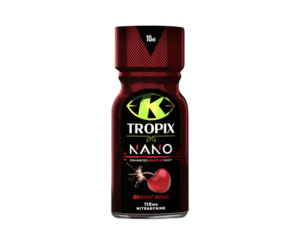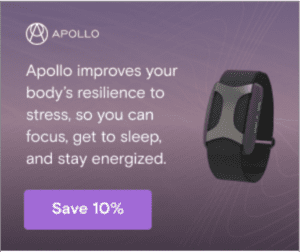In today’s fast-paced, high-pressure world, the quest for optimal brain function and mental performance has become more important than ever. As we navigate through the challenges of daily life, work, and personal growth, many of us seek natural ways to enhance our cognitive abilities and support our overall well-being.
Enter Citicoline, a potent brain nutrient that has garnered significant attention in the world of nootropics for its potential to unlock the full potential of our minds.
What is Citicoline?
Citicoline, also known as CDP-Choline or cytidine diphosphate-choline, is a naturally occurring compound found in every cell of the human body. It serves as an essential building block for the synthesis of phosphatidylcholine, a major component of cell membranes, particularly in the brain. Citicoline is composed of two key molecules: choline and cytidine, which work synergistically to support various aspects of brain health and function.
The importance of Citicoline for cognitive health cannot be overstated. As a precursor to acetylcholine, a neurotransmitter crucial for memory, learning, and overall brain function, Citicoline plays a vital role in maintaining optimal cognitive performance. By supporting the integrity of neuronal membranes and promoting the efficient transmission of nerve impulses, Citicoline helps to keep our brains sharp, focused, and resilient in the face of daily challenges.
Citicoline has shown promising potential benefits for various neurological conditions. From age-related cognitive decline to traumatic brain injury and stroke recovery, this versatile nutrient has been the subject of extensive research, offering hope for those seeking to protect and enhance their brain health.
Learn More: The Brain-Boosting Effects of Choline
Mind Lab Pro
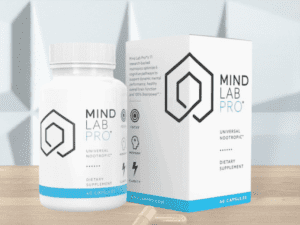
Elevate your mind with Mind Lab Pro, our #1 choice for peak focus and memory, powered by Citicoline!
How Citicoline Works in the Brain
To fully appreciate the potential of Citicoline as a cognitive enhancer, it’s essential to understand its mechanisms of action within the brain. Citicoline’s impact on neurotransmitters, brain energy metabolism, and cell membrane integrity all contribute to its nootropic effects.
Citicoline’s Impact on Neurotransmitters
One of the primary ways Citicoline supports brain function is by influencing key neurotransmitters involved in cognitive processes. As a choline donor, Citicoline helps to increase the production of acetylcholine, often referred to as the “learning neurotransmitter.” Adequate levels of acetylcholine are essential for memory formation, attention, and overall cognitive performance.
In addition to acetylcholine, Citicoline has been shown to modulate the levels of dopamine and norepinephrine, two neurotransmitters involved in motivation, focus, and emotional regulation. By optimizing the balance of these neurotransmitters, Citicoline may help to improve mood, reduce stress, and enhance mental clarity.
Enhancing Brain Energy Metabolism
The brain is an energy-hungry organ, requiring a constant supply of fuel to function at its best. Citicoline has been shown to support brain energy metabolism by increasing the production of ATP (adenosine triphosphate) in brain cells. ATP is the primary energy currency of the cell, powering various biochemical processes essential for cognitive function.
Moreover, Citicoline supports the function of mitochondria, the powerhouses of the cell responsible for generating ATP. By optimizing mitochondrial function, Citicoline helps to ensure that brain cells have the energy they need to perform at their peak, even under conditions of stress or high demand.
Promoting Brain Cell Membrane Integrity
The health and integrity of neuronal membranes are crucial for efficient communication between brain cells. Citicoline plays a vital role in maintaining the structural integrity of these membranes by increasing the levels of phosphatidylcholine, a key component of cell membranes.
By supporting the repair and regeneration of neuronal membranes, Citicoline helps to protect brain cells from damage caused by oxidative stress, inflammation, and other harmful factors. This neuroprotective effect may be particularly beneficial for individuals at risk of age-related cognitive decline or those recovering from brain injuries.
Benefits of Citicoline Supplementation
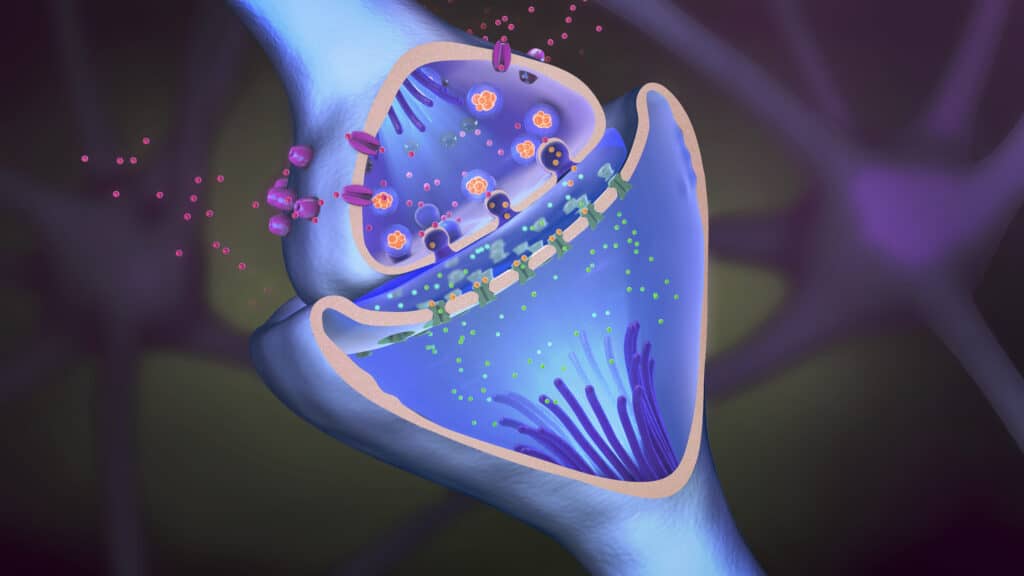
The unique mechanisms of action of Citicoline translate into a wide range of potential benefits for cognitive health and overall well-being. Let’s explore some of the most notable effects of Citicoline supplementation, backed by scientific research and user experiences.
Improving Focus and Concentration
One of the most sought-after benefits of Citicoline is its ability to enhance focus and concentration. Numerous studies have investigated the effects of Citicoline on attention and vigilance, with promising results. For example, a randomized controlled trial conducted by McGlade et al. (2015) found that Citicoline supplementation improved attention and psychomotor speed in adolescent males.
User experiences often mirror these research findings, with many individuals reporting increased mental clarity, sharper focus, and enhanced productivity when taking Citicoline. By optimizing the levels of neurotransmitters involved in attention and arousal, Citicoline may help to combat distractions, reduce mental fatigue, and improve overall cognitive performance.
Enhancing Memory and Learning
Another key benefit of Citicoline supplementation is its potential to enhance memory and learning. Several studies have investigated the effects of Citicoline on memory performance, particularly in the context of age-related cognitive decline. For instance, a review by Alvarez-Sabín & Román (2013) found that Citicoline may help to improve memory function in individuals with mild cognitive impairment and vascular dementia.
The memory-boosting effects of Citicoline are thought to be mediated by its ability to support the synthesis of phosphatidylcholine, a crucial component of neuronal membranes involved in the formation and retrieval of memories. By promoting the health and plasticity of brain cells, Citicoline may facilitate the encoding, consolidation, and recall of information, leading to better learning outcomes and improved cognitive performance.
Supporting Mood and Emotional Well-Being
In addition to its cognitive benefits, Citicoline has shown promise in supporting mood and emotional well-being. By modulating the levels of neurotransmitters involved in mood regulation, such as dopamine and norepinephrine, Citicoline may help to alleviate symptoms of depression, anxiety, and stress.
A randomized, double-blind, placebo-controlled trial conducted by Roohi-Azizi et al. (2017) found that Citicoline, when used in combination with the antidepressant citalopram, significantly improved symptoms of major depressive disorder compared to citalopram alone. These findings suggest that Citicoline may be a valuable adjunct therapy for individuals struggling with mood disorders, offering a natural and well-tolerated option for emotional support.
Learn More: Best Nootropics for Depression
Neuroprotective Properties
Beyond its cognitive and mood-enhancing effects, Citicoline has demonstrated neuroprotective properties that may help to safeguard brain health in the face of various challenges. By reducing oxidative stress and inflammation, two key factors in neurodegeneration, Citicoline may help to protect brain cells from damage and promote their long-term survival.
These neuroprotective effects have been explored in the context of brain injury and stroke recovery. A review by Grieb (2014) highlighted the potential of Citicoline to support brain repair and regeneration following ischemic events, suggesting that it may be a valuable tool in the management of cerebrovascular disorders.
| Benefit | Key Mechanisms | Relevant Studies |
|---|---|---|
| Focus and Concentration | Increases acetylcholine and dopamine levels | McGlade et al. (2015) |
| Memory Enhancement | Supports brain cell membrane integrity and repair | Alvarez-Sabín & Román (2013) |
| Mood Support | Modulates neurotransmitters involved in mood | Roohi-Azizi et al. (2017) |
| Neuroprotection | Reduces oxidative stress and inflammation | Grieb (2014) |
Citicoline Dosage and Administration
When considering Citicoline supplementation, it’s essential to understand the recommended dosage range and administration guidelines to ensure safety and optimal results. While individual responses may vary, the following information can serve as a general guide for those interested in incorporating Citicoline into their nootropic regimen.
Recommended Daily Dosage Range
The typical daily dosage of Citicoline used in research studies ranges from 500 to 2,000 mg per day, often divided into two or three doses. However, for cognitive enhancement purposes, a daily dosage of 250 to 500 mg appears to be sufficient for most individuals, providing noticeable benefits without the risk of side effects.
It’s important to start with a lower dose and gradually increase it as needed, monitoring your individual response and adjusting the dosage accordingly. Some users may find that a higher dose provides greater benefits, while others may be more sensitive to the effects of Citicoline and require a lower dose.
Timing and Duration of Supplementation
The optimal timing of Citicoline supplementation may depend on your specific goals and individual preferences. Many users find that taking Citicoline in the morning or early afternoon helps to promote focus, energy, and productivity throughout the day. Others may prefer to take it in the evening to support memory consolidation and brain repair during sleep.
When it comes to the duration of supplementation, Citicoline is generally considered safe for long-term use. However, some users may choose to cycle their Citicoline intake, taking breaks every few weeks or months to maintain sensitivity to its effects and prevent potential tolerance or dependence.
Bioavailability and Absorption
The bioavailability and absorption of Citicoline can vary depending on the specific form and delivery method used. Two common forms of Citicoline supplements are CDP-Choline and Cognizin®, a patented form of Citicoline that has been extensively studied for its cognitive benefits.
Factors such as individual metabolism, gut health, and the presence of other nutrients or medications may influence the absorption and utilization of Citicoline in the body. To optimize absorption, it’s generally recommended to take Citicoline with food, particularly sources of healthy fats, which can enhance its bioavailability.
Potential Side Effects and Precautions
While Citicoline is generally well-tolerated and considered safe for most individuals, it’s essential to be aware of potential side effects and precautions before starting supplementation. By understanding these considerations, you can make an informed decision about whether Citicoline is right for you and take steps to minimize any risks.
Common Side Effects
The most common side effects reported with Citicoline use include digestive discomfort, such as nausea, diarrhea, and stomach pain. Some users may also experience headaches, insomnia, or restlessness, particularly when taking higher doses or when first starting supplementation.
To minimize the risk of side effects, it’s important to start with a lower dose and gradually increase it as tolerated. Taking Citicoline with food may also help to reduce digestive discomfort. If side effects persist or become bothersome, it’s advisable to reduce the dosage or discontinue use and consult with a healthcare professional.
Drug Interactions and Contraindications
While Citicoline is generally considered safe and well-tolerated, it’s important to be aware of potential drug interactions and contraindications. Citicoline may interact with certain medications, particularly those that affect cholinergic or dopaminergic systems in the brain, such as anticholinergic drugs or dopamine agonists.
Individuals with certain medical conditions, such as bipolar disorder or seizure disorders, should exercise caution when considering Citicoline supplementation, as it may exacerbate symptoms or interact with prescribed medications. Always consult with a qualified healthcare provider before starting any new supplement, especially if you have a pre-existing medical condition or are taking prescription medications.
Safety Considerations for Specific Populations
While Citicoline is generally considered safe for most adults, there are certain populations that may require special considerations or precautions. Pregnant and breastfeeding women should consult with their healthcare provider before taking Citicoline, as there is limited research on its safety during these sensitive periods.
Similarly, children and adolescents should not take Citicoline without the guidance and supervision of a qualified healthcare professional, as the long-term effects of supplementation on developing brains are not yet fully understood. Individuals with pre-existing health conditions or those taking medications should also seek medical advice before incorporating Citicoline into their regimen to ensure safety and prevent potential interactions.
Citicoline vs. Other Cholinergic Nootropics
Citicoline is just one of many cholinergic nootropics available on the market, each with its own unique properties and potential benefits. To make an informed decision about which nootropic is right for you, it’s helpful to compare Citicoline with other popular options, such as Alpha-GPC and Choline Bitartrate.
Comparison with Alpha-GPC and Choline Bitartrate
Alpha-GPC (Alpha-Glycerylphosphorylcholine) and Choline Bitartrate are two other common cholinergic nootropics that are often compared to Citicoline. While all three compounds provide choline to the brain, they differ in their composition, absorption, and potential additional benefits.
Alpha-GPC is known for its high bioavailability and direct action on increasing acetylcholine levels in the brain. It has been studied for its potential cognitive-enhancing effects, particularly in the context of age-related cognitive decline and Alzheimer’s disease. However, Alpha-GPC may be more expensive than Citicoline and may cause side effects such as headaches and gastrointestinal discomfort in some individuals.
Choline Bitartrate, on the other hand, is a more affordable and widely available form of choline. It is less bioavailable than Citicoline or Alpha-GPC and may require higher doses to achieve similar effects. While Choline Bitartrate can still provide cognitive benefits, it may not be as potent or comprehensive as Citicoline in terms of supporting overall brain health and function.
Synergistic Combinations with Other Nootropics
One of the advantages of Citicoline is its versatility and potential for synergistic combinations with other nootropics. By combining Citicoline with compounds that target different aspects of cognitive function, you may be able to achieve even greater benefits and tailor your nootropic regimen to your specific needs and goals.
For example, combining Citicoline with racetams, such as Piracetam or Aniracetam, may provide a powerful boost to memory, learning, and overall cognitive performance. These racetams work by modulating acetylcholine receptors in the brain, while Citicoline provides the raw material for acetylcholine synthesis, creating a synergistic effect.
Another potential synergistic combination is Citicoline with acetylcholinesterase inhibitors, such as Huperzine A. By preventing the breakdown of acetylcholine in the brain, these compounds can further enhance the effects of Citicoline and promote sustained levels of this important neurotransmitter.
Adaptogens, such as Bacopa Monnieri and Lion’s Mane mushroom, may also pair well with Citicoline, providing a balance of cognitive enhancement and stress resilience. These natural compounds have been studied for their potential to improve memory, focus, and overall brain health, making them valuable additions to a comprehensive nootropic regimen.
Learn More: Adaptogens and Nootropics: What’s the Difference?
Frequently Asked Questions (FAQ) About Citicoline
As with any nootropic or supplement, it’s natural to have questions and concerns about Citicoline. Here are some of the most frequently asked questions about this powerful brain nutrient, along with concise and informative answers to help you make an informed decision about incorporating it into your regimen.
Is Citicoline safe for long-term use?
Yes, Citicoline is generally considered safe for long-term use when taken at recommended dosages. It has a low toxicity profile and is well-tolerated by most individuals. However, as with any supplement, it’s essential to monitor your individual response and consult with a healthcare professional if you experience any adverse effects or have pre-existing medical conditions.
Can Citicoline be taken with other medications or supplements?
While Citicoline is generally safe to take with most medications and supplements, there are some potential interactions to be aware of. Citicoline may interact with drugs that affect cholinergic or dopaminergic systems, such as anticholinergics or dopamine agonists. Always consult with your healthcare provider before combining Citicoline with any prescription medications or other supplements.
What is the best time of day to take Citicoline?
The optimal time to take Citicoline may vary depending on your individual goals and preferences. Many users find that taking Citicoline in the morning or early afternoon helps to promote focus, energy, and productivity throughout the day. Others may prefer to take it in the evening to support memory consolidation and brain repair during sleep. Experiment with different timing and find what works best for you.
How long does it take to experience the benefits of Citicoline?
The onset and duration of Citicoline’s effects can vary from person to person. Some users report feeling the cognitive-enhancing benefits within a few hours of supplementation, while others may notice more gradual improvements over several weeks of consistent use. It’s important to give Citicoline adequate time to build up in your system and to be patient as your brain adapts to the increased levels of choline and other nutrients.
Are there any natural food sources of Citicoline?
While Citicoline is not found in significant amounts in most foods, some natural sources of choline, such as egg yolks, beef liver, and soybeans, can help to support overall choline levels in the body. However, to achieve the cognitive-enhancing effects associated with Citicoline supplementation, it is typically necessary to take a concentrated form of this nutrient, such as CDP-Choline or Cognizin®.
Where to Buy Citicoline
When it comes to purchasing Citicoline supplements, it’s essential to choose a reputable source that prioritizes quality, purity, and safety. Not all Citicoline products are created equal, and selecting a high-quality supplement can make a significant difference in your experience and results.
Factors to Consider When Choosing a Citicoline Supplement
To ensure you’re getting the best possible Citicoline supplement, consider the following factors:
- Quality and purity of ingredients: Look for supplements that use high-quality, pure Citicoline, free from contaminants and fillers.
- Reputation of the manufacturer: Choose brands with a proven track record of producing effective and safe nootropic supplements.
- Third-party testing and certifications: Opt for supplements that have undergone independent testing to verify their potency and purity, such as those with GMP (Good Manufacturing Practices) or NSF International certifications.
Recommended Citicoline Supplements
Based on our research and user experiences, some of the top-rated Citicoline supplements on the market include:

Mind Lab Pro

Nootropics Depot Buy Cognizin Citicoline Powder
Remember, while these supplements are highly recommended, it’s essential to do your own research and consult with a healthcare professional to determine the best option for your individual needs and goals.
Learn More: Best Lion’s Mane Mushroom Supplements
Citicoline Discussions on Reddit
Reddit has become a valuable platform for individuals to share their experiences, insights, and questions about various nootropics, including Citicoline. By exploring the discussions and anecdotal reports on Reddit, you can gain a more comprehensive understanding of how Citicoline affects real users and learn from their successes and challenges.
Citicoline for Attention Deficit Hyperactivity Disorder (ADHD)
One topic of interest on Reddit is the potential use of Citicoline for managing symptoms of ADHD, particularly in terms of improving focus and reducing impulsivity. Users share their experiences and discuss the potential mechanisms behind Citicoline’s effects on attention and cognitive function.
I’ve found that low choline = depression/anhedonia and high choline = irritability and anxiety. Huperzine-A works great for me though, it increases choline in an indirect way. I feel sharper during the day which indirectly helps my depression.
u/SnooApples9991 in discussion ‘Using Citicoline for Antidepressive Effects’
Citicoline Dosage and Side Effects
Finding the optimal Citicoline dosage and managing potential side effects is another common topic of discussion on Reddit. Users share their experiences with different dosages and provide advice on minimizing adverse effects, such as headaches and sleep disturbances.
I would simply stop. You’re accumulating more and more, and every time your tissues can’t store more, the rest just gets released. It’s safe to stop without tapering.
u/snot_2046 in discussion ‘Is citicoline supposed to make you sleepy’
Citicoline and Depression
The potential use of Citicoline as an adjunct treatment for depression is another area of interest on Reddit. Users share their experiences, both positive and cautionary, and discuss the potential mechanisms behind Citicoline’s effects on mood and emotional well-being.
Currently taking 400mg citicoline + 5mg escitalopram daily. Couldn’t have healed without escitalopram but had many side effects; citicoline + other supplements help me focus and improve my sleep quality.
u/dukesam in discussion ‘Using Citicoline for Antidepressive Effects’
While these discussions can provide valuable insights and inspiration, it’s crucial to remember that individual experiences may vary, and what works for one person may not work for another. Always approach nootropic supplementation with caution, starting with low doses and monitoring your own response. If you have any concerns or pre-existing health conditions, consult with a qualified healthcare professional before starting any new supplement regimen.
Conclusion
Citicoline is a powerful nootropic that has demonstrated significant potential for enhancing cognitive function, supporting mood and emotional well-being, and promoting overall brain health. By understanding its mechanisms of action, benefits, and proper usage, you can make an informed decision about whether Citicoline is right for you and how to incorporate it into your comprehensive brain optimization regimen.
Remember, while Citicoline can be a valuable tool for enhancing cognitive performance, it is just one piece of the puzzle. True brain optimization involves a holistic approach that encompasses a balanced diet, regular exercise, stress management, and a commitment to lifelong learning and personal growth.
As you embark on your journey with Citicoline and other nootropics, be patient, stay informed, and listen to your body. Embrace the process of self-discovery and experimentation, and don’t hesitate to reach out to the vibrant and supportive nootropics community for guidance and inspiration along the way.
Learn More: The Best Nootropic Stack for Ultimate Brain Performance
References
- McGlade E, Agoston AM, DiMuzio J, et al. The Effect of Citicoline Supplementation on Motor Speed and Attention in Adolescent Males. J Atten Disord. 2019;23(2):121-134. doi: 10.1177/1087054715593633. https://pubmed.ncbi.nlm.nih.gov/26179181/
- Alvarez-Sabín J, Román GC. Citicoline in vascular cognitive impairment and vascular dementia after stroke. Stroke. 2011;42(1 Suppl):S40-S43. doi: 10.1161/STROKEAHA.110.606509. https://pubmed.ncbi.nlm.nih.gov/21164117/
- Roohi-Azizi M, Arabzadeh S, Amidfar M, et al. Citicoline Combination Therapy for Major Depressive Disorder: A Randomized, Double-Blind, Placebo-Controlled Trial. Clin Neuropharmacol. 2017;40(1):1-5. doi: 10.1097/WNF.0000000000000185. https://pubmed.ncbi.nlm.nih.gov/28085707/
- Grieb P. Neuroprotective properties of citicoline: facts, doubts and unresolved issues. CNS Drugs. 2014;28(3):185-193. doi: 10.1007/s40263-014-0144-8. https://pubmed.ncbi.nlm.nih.gov/24504829/






